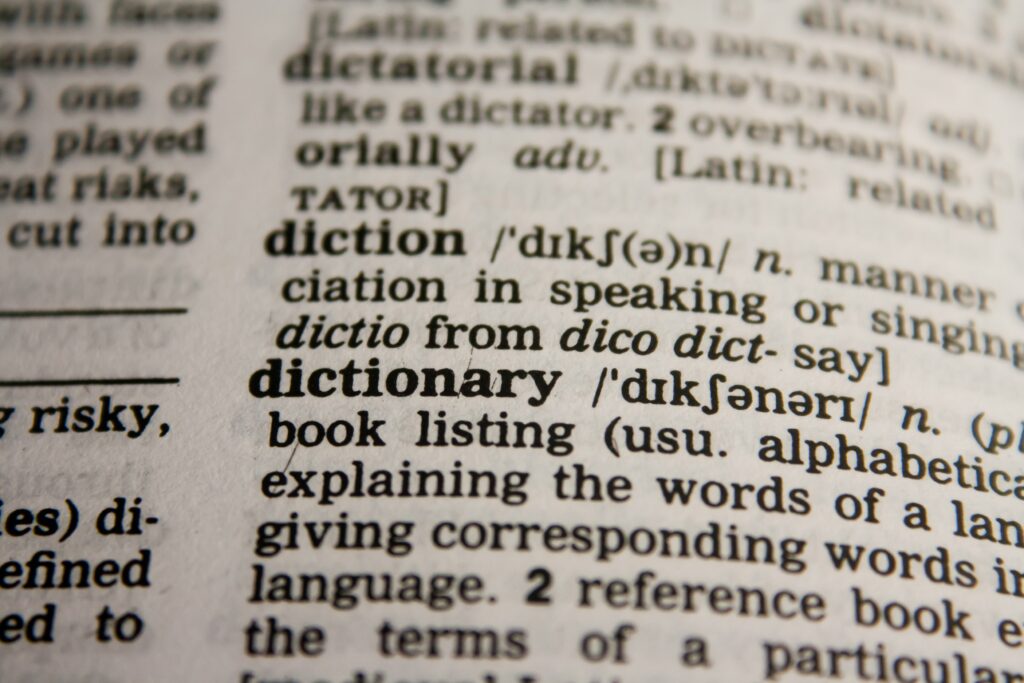A few years ago my friend David went to an event in Manhattan where Malcolm Gladwell was speaking. Gladwell presented some theories on the mortgage lending crisis in that way only Gladwell can – a captivating story that borders on conspiracy theory, but appears to be founded on research and investigative journalism.
The audience was enraptured.
The man is a master storyteller.
At the end, Gladwell took questions. My friend David raised his hand and said, “I worked in the company you’re talking about and the facts you have are wrong.”
I wasn’t there, but I imagine the tension was palpable. I know what it feels like to be contested in public on a stage and it’s not something I would call “pleasant.”
But instead of being defensive or argumentative, Gladwell seemed delighted. “Shall we grab coffee?”
Gladwell wanted to know EVERYTHING. Hungry for where his facts were incorrect, curious as to why, and grateful that my friend David pointed them out. He devoured the reading my friend gave him and ended up revising the ideas he was working on to include the new information. And the two parted ways.
Gladwell gets a lot of flack for his storytelling. He’s either praised as a genius or derided as a fool. I like him and I’ll tell you why, but it requires jumping back a few years to when Outliers came out.
In the book, Gladwell cited a study that (he) claimed (said) 10,000 hours was the magic number that got you to mastery. If you spent 10,000 hours playing piano or singing, that’s when you go from “good” to “un-befucking-lievable.” Allegedly. This detail is the least interesting part of the book, IMO, but a lot of people clung onto this particular point because it appeared to be evidence of the American Dream – it’s not a matter of talent! You just gotta put in the time! HOLY SHIT!!
Everyone and their mom started citing this study and debunking natural talent. In my circles it became the rally cry for toxic hustle culture: GET IN YOUR HOURS! HUSTLE!!
We all know, now, it’s not true. The 10,000 hours rule is false (or rather, incomplete).
Business Insider was one of a bajillion media outlets that profited from character assassinating Gladwell for it, using fun headlines like, “New Study Destroys Malcolm Gladwell’s 10,000 Rule.”
In theory, it’s nbd if new research debunks old research.
In fact, that’s the point. That’s how the scientific method works. In Gladwell’s case, he (allegedly) took some liberties with what he found in the research and that is a legitimate problem; but your job is not to take everything you read as Bible. Even what I write. Challenge. Contest. Ask questions.
But don’t character assassinate for the purpose of clicks. Character assassinations like the ones Inc, Vox, Business Insider, and the rest of the confederacy of dunces published, make you look stupid. If you want to make a good point, attack the idea. Not the person.
And now we’ve arrived at why I like Gladwell. The person.
Because amidst all the outrage, guess who wasn’t outraged?
Gladwell.
The 10,000-hour stuff that I put in Outliers was really only intended to perform a very specific narrative function — or not narrative function, but argumentative function. To me, the point of 10,000 hours is: if it takes that long to be good, you can’t do it by yourself.
If you have to play chess for 10 years in order to be a great chess player, then that means that you can’t have a job, or maybe if you have a job it can’t be a job that takes most of your time. It means you can’t come home, do the dishes, mow the lawn, take care of your kids. Someone has to do that stuff for you. That was my argument.
That if there’s a kind of incredibly prolonged period that is necessary for the incubation of genius, high-performance, elite status of one sort of another, then that means there always has to be a group of people behind the elite performer making that kind of practice possible. And that’s what I wanted to say.
Basically he says: YOU MISSED THE BIGGER POINT.
It gets better. Anders Ericsson, the author (first author) of the original study that found the 10k result, was also not outraged. He is a Gladwell fan and said this:
I think he’s really done something very important, helping people see the necessity of this extended training period before you reach high levels of performance. But I think there’s really nothing magical about 10,000 hours. Just the amount of experience performing may, in fact, have very limited chances to improve your performance. The key seems to be that deliberate practice, where you’re actually working on improving your own performance — that is the key process, and that’s what you need to try to maximize.
[If you have time at the gym or on your way home from work, listen to the full interview with both of them on Freakonomics ]
There was no controversy.
Moreover, everyone missed the point.
The point was if you want to achieve mastery you need enormous amounts of privilege and a team of people behind you making it possible. That’s the part everyone missed and IMO the real reason for the outrage. It debunks the American Dream where the 10,000 hours rule supported it. Outliers was about how the stories we tell about “rugged individualism” are false (or more accurately, missing enormous amounts of context).
When you have people’s attention, you have a moral and civic responsibility not to abuse that power. To have integrity.
You are welcome to challenge Gladwell’s ideas. In fact, he wants you to.
But to attack his character (even if it’s warranted) is to destroy your point.
If your contention is with an idea, get educated on the idea, then challenge it with reason. None of this strawman ad hominem baloney everyone is spewing. Defend your ideas, contest ideas, and remember the rule:
This is supposed to be fun.
That’s why I like Gladwell. Unlike everyone else online baiting each other into ad hominem attacks, he seems like he’s genuinely having fun.
Adam Grant noticed this about Gladwell too and in a conversation between them at 92Y Grant tells Gladwell, “You’re my favorite sparring partner.” They take turns jabbing each other on issues (the best of which is this) and laugh through the entire thing.
“You really take joy in intellectual disagreement,” says Grant.
“I’m happy to lose arguments to you anytime you want,” Gladwell replies.
They’re having fun.
Take 👏🏼joy 👏🏼 in 👏🏼intellectual 👏🏼disagreement 👏🏼.
When was the last time you took JOY in intellectual disagreement?
What my friend David saw was a man enjoying the process. Obsessed with ideas, not his attachment to them or his identification with them. You can (and you should) have conviction, but when that conviction turns into blind loyalty to an unexamined idea and an inability to go to bat for your idea beyond logical fallacies – you don’t have conviction.
You have fanaticism.
Integrity can’t live where there is fanaticism. And in order to disagree effectively, you need integrity.
Because when you fight from a place of integrity…it’s fun.




